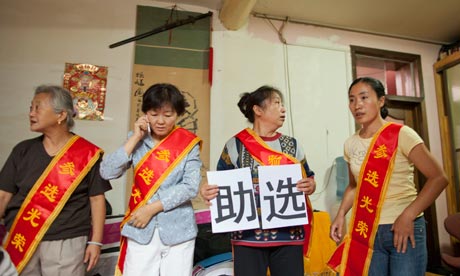By Greg Donaldson
Impunity Watch Reporter, Asia
MANILA, Philippines – On Wednesday Human Rights Watch (HWR) called for the New People’s Army (NPA) to end unlawful killings and detentions of civilians. The communist group has sought for over forty years to establish a Maoist state in the Philippines.
NPA has claimed responsibility for the killing and detentions of several citizens over the past few months.
“For four decades the New People’s Army has offered excuses for cold-blooded killings of civilians,” said Elaine Pearson, deputy Asia director at Human Rights Watch. “Recent attacks show that there has been no real departure from this illegal practice.”
NPA justifies its actions by explaining prior to death, civilians were tried before a “people’s court” and were found guilty of “crimes against the people.” “Crimes against the people” could range from rape and murder to spying on the NPA.
Philip Alston, the United Nations special rapporteur on extrajudicial executions from 2004 to 2010, strongly criticized the NPA’s court system saying it “is either deeply flawed or simply a sham.”
Alston continued “any claim that people who are tried by the NPA’s ‘people’s courts’ are receiving a fair hearing is ludicrous,” Pearson said. “The NPA’s ‘revolutionary justice’ is not just – it is simply old-fashioned murder.”
Currently NPA is holding thirteen people, including Mayor Dano of Lingig, on the island of Mindanao under suspicion of working for the government as spies. HWR reports that at least six members of the group will be tried before the “people’s court” for their alleged crimes.
Last month, during a one day ceasefire, NPA captured and executed two troops. Both troops were in civilian clothing and had just attended a wedding.
NPA admitted to the August and September killings of Raymundo “Monding” Agaze and Ramelito “Ramel” Gonzaga. In addition NPA took responsibility for the accidental injuring of a pregnant woman.
On Monday the rebel group attacked a mine at Claver town in the province of Surigao del Notre, burning down trucks and taking several firearms.
HWR has called for the NPA to abide by international human law and for the government to investigate and prosecute those who have been involved in unlawful killings and detentions.
“Both the NPA and government forces have committed numerous atrocities in more than forty years of armed conflict,” Person said. “Each claims to have the interests of the ordinary Filipino at heart, but neither seems to show it.
The conflict has claimed the lives of over 40,000 people in regions that have been described as poor but resource-rich areas of the country.
For more information, please see:
Philippine Daily Inquirer – Rights Group Slams NPA for ‘Cold-Blooded’ Killings– 6 September 2011
ABS-CBN News – NPA Under Fire for Killings, Attacks on Civilians – 5 October 2011
AlertNet – Philippine Rebels Must Stop Targeting Civilians – rights group – 5 October 2011
Human Rights Watch –Philippines Communist Rebels Target Civilians – 5 October 2011
ABS-CBN News – NPA Kidnapped, Executed 2 Troopers During Ceasefire – AFP – 23 September 2011


